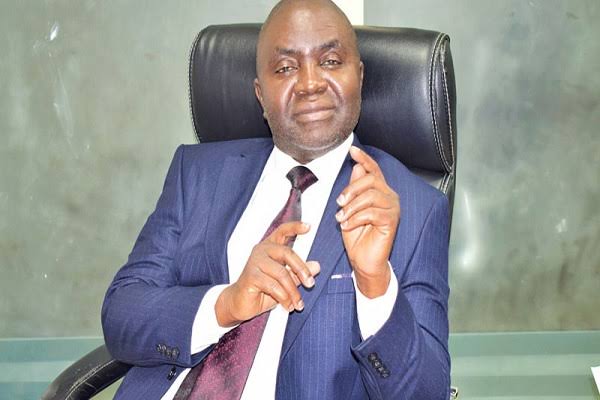Amid the rising economic challenges facing the country resulting to paucity of infrastructure, the Chief Executive Officer of the Centre for the Promotion of Private Enterprise (CPPE), Dr. Muda Yusuf has said that the micro small and medium enterprises (MSMEs) hold the key to economic prosperity if they have the right operating environment.
Dr. Yusuf who also said that MSMEs have the capacity to generate over 20 million jobs, said the sector has been struggling because it is not receiving the right attention from the authorities.
Speaking at the 2023 business roundtable organised by the National Association of Small and Medium Enterprises (NASME) in Lagos recently, the former Director General of Lagos Chamber of Commerce and Industry (LCCI), quoting data from the Small and Medium Enterprises Development Agency of Nigeria (SMEDAN), said that there are 39.65 million MSMEs, in Nigeria as at 2020, 96.9 percent of these MSMEs are micro enterprises while only 3.1 percent are small and medium enterprises. He said if for instance only 50 percent of them could create just one job each, that would generate about 20 million jobs.
The theme of the roundtable is: MSMEs : The Catalyst for Nigeria’s Economic Rejuvenation and Growth.
According to him, “These are very challenging times for businesses, especially the MSMEs. Any MSME that is still standing, despite the prevailing difficulties deserves to be celebrated and specially commended.
“The MSMEs are the pillars and the life wire of the Nigerian economy. They are the major sources of the resilience that the Nigerian economy had long been reputed for, amid numerous shocks. We are currently going through another round of shocks inflicted by the Fuel subsidy removal and the partial unification of the exchange rate. Even though these reforms were desirable, the social outcomes have been very profound.”
He said the mortality rate among the MSMEs in Nigeria is very high because of the numerous headwinds in the Nigerian business environment.
“These challenges include the structural constraints, especially around infrastructure, the naira exchange rate depreciation and the related liquidity crises in the foreign exchange market, the galloping inflation, weak purchasing power, regulatory compliance costs, high transaction costs at our ports, the multiplicity of taxes and levies, high cost of logistics, insecurity effects on the agricultural sector, influx of cheap Asian products into the Nigerian markets, the cost of fund, to mention a few.”
Suggesting a way out, Dr. Yusuf said, “The systemic issues of infrastructure should be addressed as a matter of utmost priority. Immediate focus should be on electricity supply and logistics. Unless we have these two critical infrastructures in place, it will be very difficult to ensure a competitive industrial sector and to make possible the transformation of the sector.
“We should fix the foreign exchange liquidity and currency depreciation issues. MSMEs with annual turnover of N50 million and below should be exempted from corporate tax and value added tax (VAT). This is in addition to tackling the problem of multiple taxes and levies on small businesses both by state and non-state actors.
“Structural issues on infrastructure should be addressed to improve productivity and competitiveness of manufacturing firms. We should address concerns about unfair competition from imported finished goods.
We should address regulatory and institutional problems affecting MSMEs
challenges of access to credit, cost of credit and tenure of funds should be addressed.”
Speaking further , he said, “We should focus on labor-intensive industries to enhance job creation and promote economic inclusion. We need to ensure that there is adequate investment in core industries such as Iron and steel and Petrochemical to facilitate backward integration. We should take full advantage of the large Nigerian market to scale up our industrial capacity utilization.
“We should ensure the full and effective implementation of Executive Order 003 on patronage of locally produced goods and address the escalating energy cost – diesel, gas and aviation fuel.”
Yusuf also suggested that government should be generous with tax cuts on energy and power solutions and products to moderate energy costs.
“We need to support the small businesses with business development skills as well as technical skills. These are some of the things that the government needs to do to support the growth of MSMEs in our drive towards Industrialization.”
He also urged government to have a pool of experts to offer business advisory services to the MSMEs free of charge, physically and virtually. He also added that there should be initiative to promote sub-contracting.
“Large enterprises and foreign companies alike should be encouraged to sub contract aspects of their operations and activities to the indigenous small and medium enterprises, where feasible,” he said. “This would foster linkages and promote inclusiveness in our Industrialization process.”


